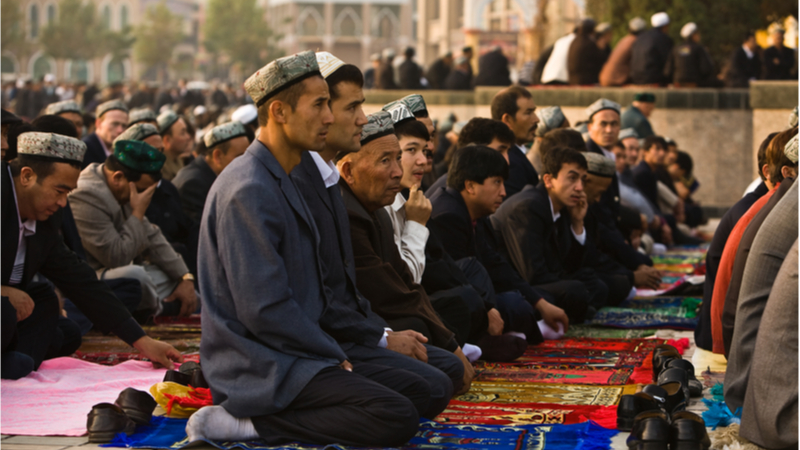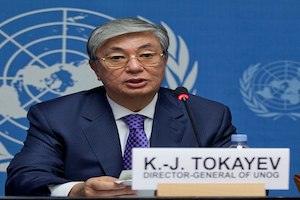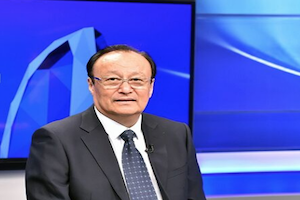Traversing Xinjiang: A Chinese Colonial Space
By Mushtaq A. Kaw
March 9, 2022
The recent U.S. ban on Xinjiang imports in reaction to the "widespread, state sponsored forced labor" and "mass detention" of the ethnic Muslim minorities in China’s far-western and strategically important Xinjiang province denotes a marked U.S. contribution to the international protest against Chinese human rights abuses in Xinjiang. However, international opposition is unlikely to make any dent on China, which has an ambitious colonial agenda to accomplish in the disputed region.

Kazakh Anti-Chinese Protests and the Issue of Xinjiang Detention Camps
By Elzbieta Pron and Emilie Szwajnoch
October 31, 2019, the CACI Analyst
On September 21, another wave of popular anti-Chinese protests burst in Kazakhstan’s two main cities – Nur-Sultan (formerly Astana) and Almaty. During the demonstrations, Uyghur protesters joined Kazakh activists and jointly voiced their demands regarding Kazakhstan relationship with China. However, the issue of Kazakhs and Uyghurs detained in Xinjiang camps has been sidelined as a broader agenda has taken charge and the protests been overtaken by emotional anti-Chinese sentiments. While the official Kazakh response to the problem of Xinjiang camps has been very limited, yet the most active among Central Asian states, the collective voice of protesters is hardly going to have any effect on politics.

Xinjiang: Internment Camps with "Temporary" Characteristics?
By Ruth Ingram
March 25, 2019, the CACI Analyst
Official reassurances that Xinjiang's internment camps are only "temporary" fly in the face of mounting evidence to the contrary. Faced with incontrovertible data that now up to 1.5 million Uyghurs and Kazakhs are extra-judicially interned, Beijing is refusing to bow to international criticism and continues to justify its counter-terrorism strategy. Calling on the world to support its methods, Beijing is mounting an all-out public relations drive to persuade critical voices that in fact the camps are benign and successful in achieving their objectives. But the "experiment" already two years in operation shows no sign of abating. World leaders are calling it a cultural genocide and stepping up their demands to inspect the facilities.

EU–China trade to bolster security in the South Caucasus
By Boris Ajeganov
January 23, 2017, the CACI Analyst
Foreign investment in Georgia is strengthening the country’s importance in connecting East Asia with Europe, which has positive implications for the broader region. The rise in FDI in commercial and transportation infrastructure in combination with the signing of international free trade agreements will reduce Georgia’s vulnerability in terms of economic and, ultimately, ‘hard’ security. The growing importance of the South Caucasus as node for EU-China trade will weaken Russia’s incentives to undermine its southern neighbors by military, political, and economic means as it has done in the past. Accordingly, Tbilisi’s ability to conduct an independent foreign policy is set to improve despite the absence of Western security guarantees.
New signs of Chinese military interest in Central Asia
By Stephen Blank
January 16th, 2017, The CACI Analyst
Recent evidence shows a gradual increase in Chinese military activity in Central Asia, particularly with Tajikistan, Afghanistan, and Pakistan, although China has for years denied any military interest in the region. In October, PLA and Tajik forces jointly participated in counterterrorism exercises in Tajikistan near the border with Afghanistan, following earlier activity in 2016. Whereas Tajikistan was then silent, this time it publicized the exercises, which aroused a visible anxiety in the Russian media although the Russian government has hitherto been unwilling to comment on this issue. China’s initiative could imply a major new development in Chinese policy and in Central Asia’s overall security, with lasting implications for the region.





